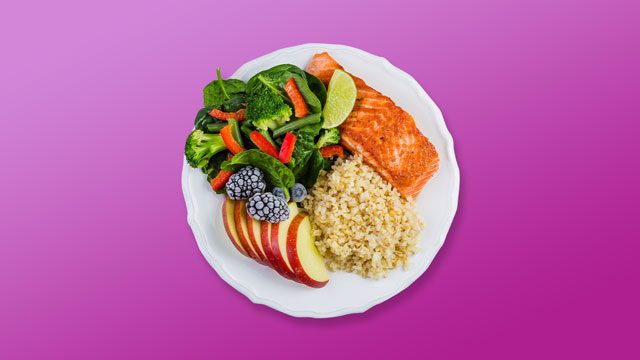SUMMARY
This is AI generated summarization, which may have errors. For context, always refer to the full article.

MANILA, Philippines – Whether you’re a high-performance athlete or someone who just wants to live a healthy lifestyle, to reach your goals, the right diet is non-negotiable.
Sports nutritionist Jeaneth Aro – who works with 2016 Rio Olympic silver medalist Hidilyn Diaz, Jerwin Ancajas, and other national and commercial sports teams – sheds light on diet trends and Pinoy eating habits that claim to make you healthier.
Aro said that a diet should be followed with respect to the amount of exercise and physical activity a person gets every day.
Here are some of her tips for those who want to achieve better health amid the coronavirus pandemic.
Eat a variety of whole foods
Whole foods are basically minimally-processed foods such as raw fruits and vegetables, complex carbohydrates (e.g., sweet potatoes), and natural fats (like those found in avocados, nuts, and seeds).
Aro recommended to include a variety of whole foods to your diet and avoid processed foods like canned goods, junk food, products with refined or added sugar like juice and cookies.
More than reducing the risk of obesity, whole foods can help lower the risk of health conditions like diabetes, heart disease, and cancer.
But with the coronavirus pandemic, Aro agreed that there is a risk in eating raw food that’s delivered, such as salads. She suggested preparing your own meals in quarantine for “peace of mind.”
“If there’s fear, just prepare your own food, so you will not only get calories but get the right nutrition and supplements,” said Aro.
In preparing raw vegetables, the sports nutritionist shared that you can sanitize your vegetables in a cold baking soda bath for 12 to 15 minutes, which also takes out the harmful substances like pesticides aside from the virus.
Look for substitutes to white rice
It’s a common response for Filipinos to cut back on rice if they want to lose weight, but Aro said that people should not remove a food group out of their diet.
Instead of eating white rice, there are many alternatives to fulfilling your ideal carbohydrate intake to maintain a balanced diet. (READ: No rice? No problem: 10 healthy alternatives to white rice)
“It’s better to substitute [white rice] with brown or black rice if you have the budget for it, [but if not], then continue consuming white rice [while] observing the right portion to your exercise,” said Aro.
For all her clients, including the athletes on hiatus, Aro portions their carbohydrate intake based on their level of physical activity.
“Carb intake should be dependent on the level of intensity and frequency of a workout in a day. [To observe a carb control diet, eat carbs before and after your exercise,” added Aro.
Supplement only when needed
According to Aro, supplements should only be taken if your diet has a deficit in certain vitamins and minerals. (READ: Q and A: What are supplements and why do you need them?)
Even though there’s no specific cure to the coronavirus, Aro recommends increasing your vitamin C intake to strengthen your immune system in general.
For adults, it’s recommended to take 60mg to 90mg of vitamin C per day.
“Everyone is buying supplements, but there really is no specific supplement or food item that can protect us from getting the virus. But food and supplementation can help strengthen our immune system to fight it off so that it won’t get worse,” said Aro.
“It’s out of sight, it’s out of mind”
On a personal level, Aro said she practices mindful grocery shopping to prevent herself from buying too much junk food, which she’ll end up seeing in their pantry.
“When it’s out of sight, it’s out of mind,” advised the woman in charge of a household of 4.
She always makes a list of the things she will buy and will stick to the list. But she also admitted that her family would purchase unhealthy snacks such as chips – but in minimal quantities.
In order to satisfy their cravings, Aro would make healthy snacks accessible to her family.
“We make healthy food accessible for snacking – roasted kamote, saba, and nuts. If they suddenly get hungry, these are accessible. I advocate more on the quality of life, and I always consider the balance.”
Aside from this, Aro portions snacks – both healthy and unhealthy – in single servings to prevent her family from overeating. – Rappler.com
Add a comment
How does this make you feel?


There are no comments yet. Add your comment to start the conversation.